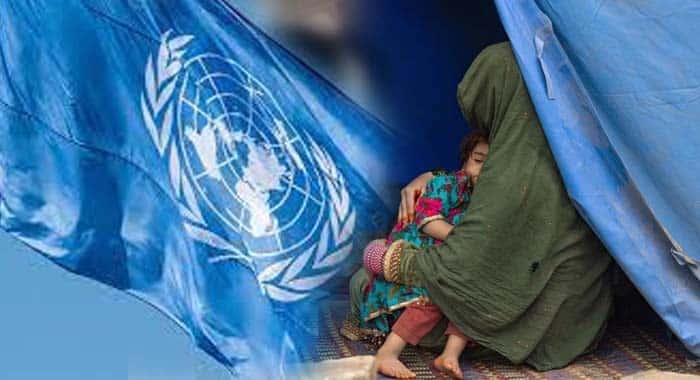A new report by the United Nations High Commissioner for Refugees (UNHCR) has revealed that Afghan women returning from Iran and Pakistan face significantly greater hardships than men, especially when it comes to securing livelihoods and accessing basic needs like food.
Titled “Achievements, Gaps, and the Way Forward in Areas of Return,” the report highlights how gender inequality has sharply intensified in Taliban-ruled Afghanistan. Six months after returning, Afghan women not only earn 23% less on average, but their overall employment rate has also declined, from 42% to 39%. In contrast, male returnees have seen steady improvements in both wages and job opportunities during the same period.
“Men benefit more from new opportunities and tend to recover economically over time, while women continue to face steep and systemic barriers,” the UN stated. The worsening disparity is particularly alarming for female-headed households, which are already more vulnerable to poverty and food insecurity.
The Taliban’s return to power has effectively erased years of progress on gender equality. Girls have been banned from secondary schools and universities, and most women have been removed from both governmental and non-governmental jobs. These restrictions have drastically curtailed women’s public presence and economic participation.
The report arrives just as Taliban spokesperson Zabihullah Mujahid recently dismissed the issue of girls’ education as “minor,” during a press briefing that itself made headlines; when a female journalist’s microphone was abruptly cut off. The Taliban, who have previously labeled women’s voices as “a vice,” have continued their crackdown on women’s rights with increasing intensity, including mass arrests of women and girls across cities like Kabul and Herat.
In response to these ongoing violations, the Afghan feminist group AFF has declared the Taliban’s so-called “morality police” as their primary target, signaling a rising tide of resistance amid escalating repression.





